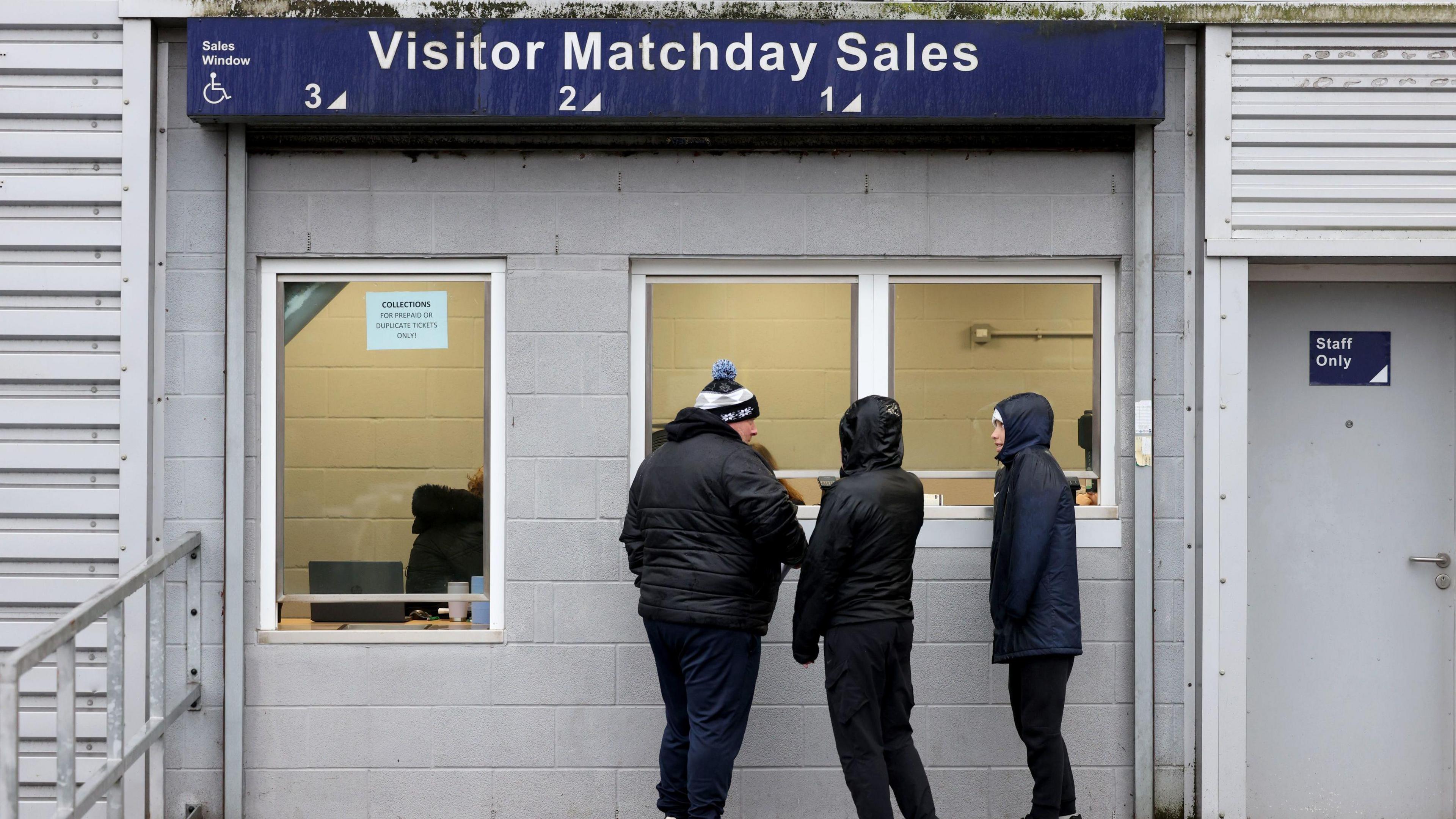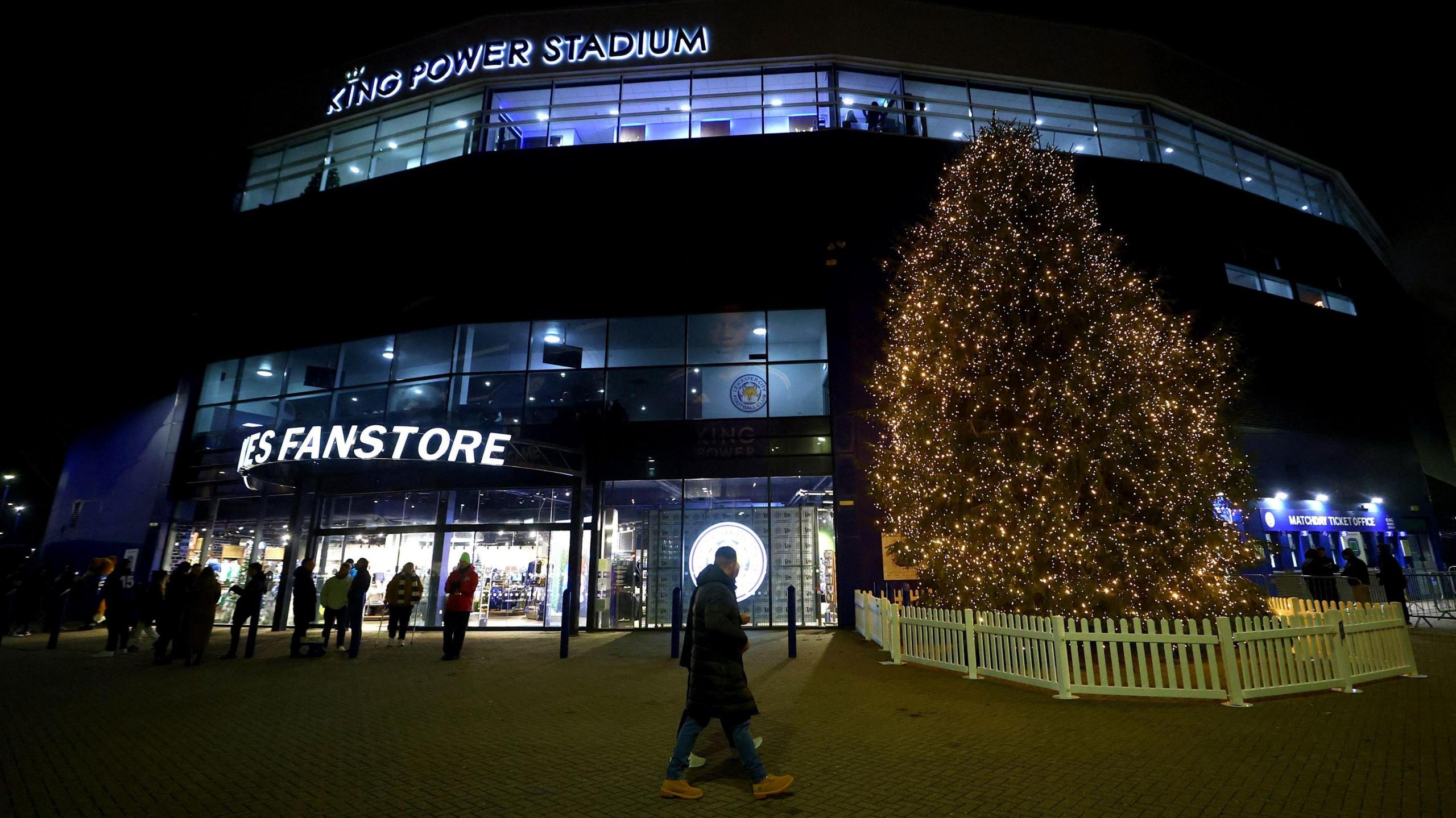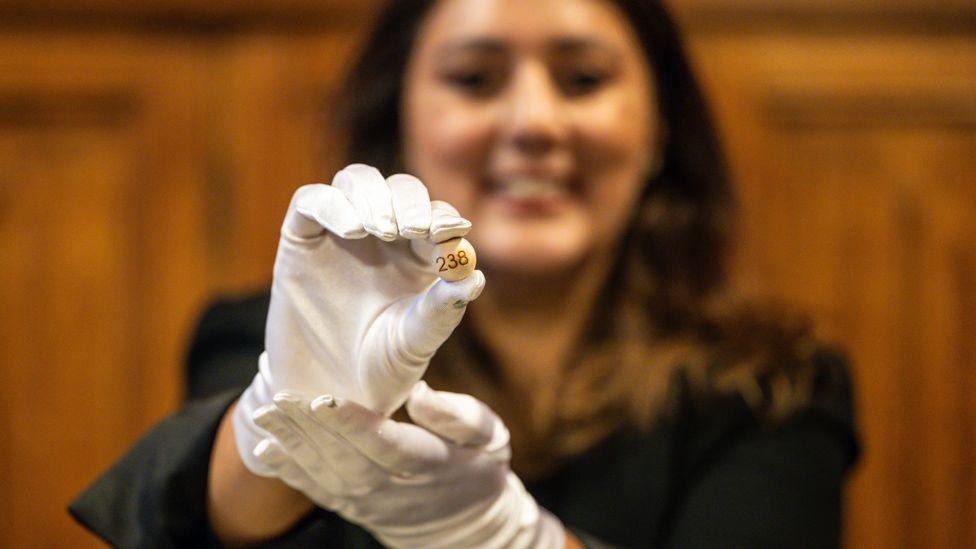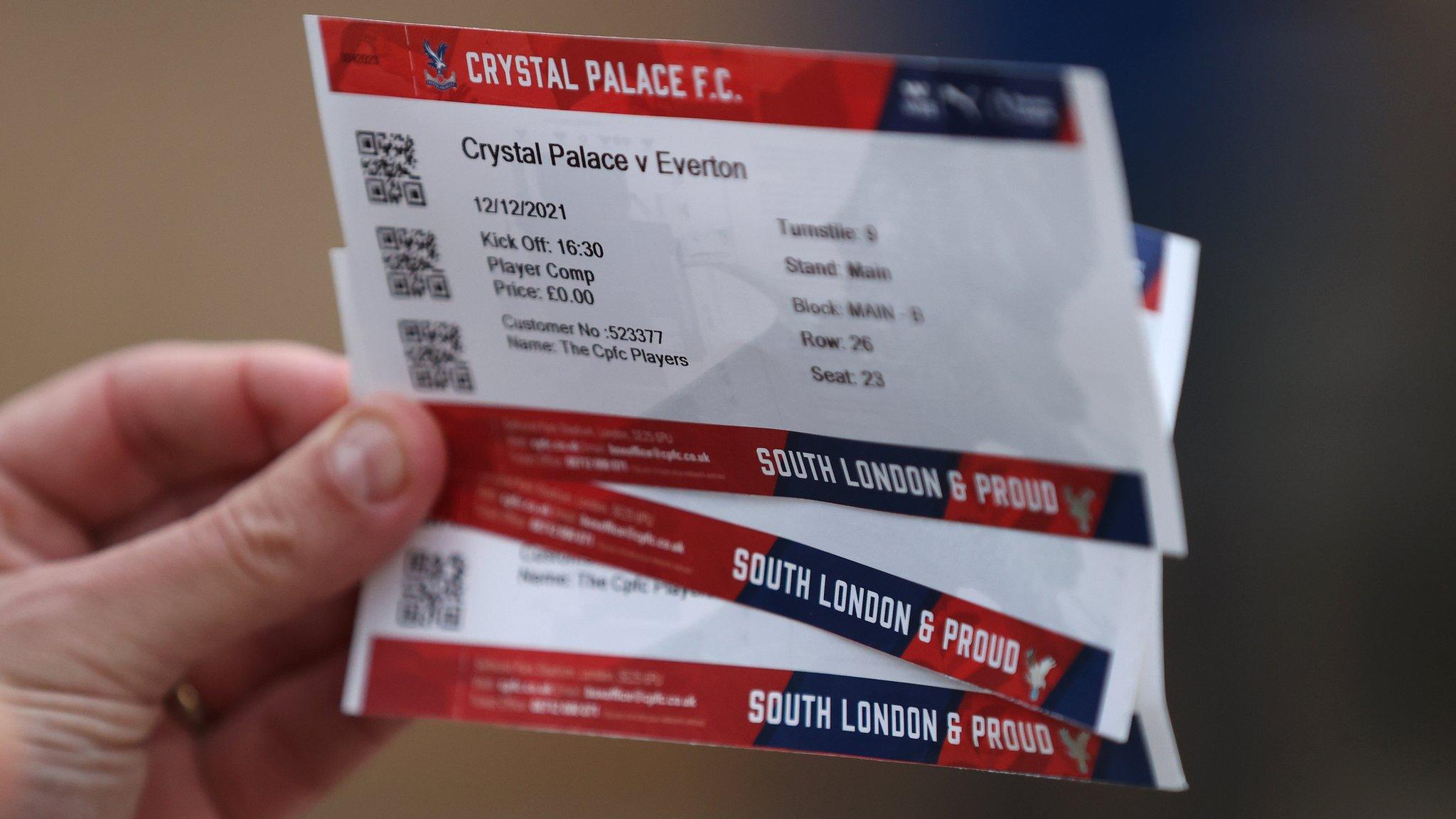Football fans without ticket face ban in new bill

The bill makes unauthorised entry to matches a specific criminal offence
- Published
Football supporters who manage to get into grounds without valid tickets could be banned for five years under legislation being considered parliament.
The bill, which has government support, makes unauthorised entry to matches a specific criminal offence.
It has been put forward by Linsey Farnsworth, Labour MP for Amber Valley, who introduced it after her name was picked out of a ballot allowing backbenchers to introduce a bill of their choice.
The legislation is due to have its second reading in the Commons on Friday but will now be looked at again in the new year, after its passage was blocked.

Outside Leicester City's game on Tuesday, some supporters questioned whether the change was needed
Farnsworth said: "For me, it's about fan safety, that fans who have a valid ticket have a great experience on matchday".
The legislation was one of the recommendations from an FA-commissioned review into the disorder at the Euro 2020 final, when thousands of people forced their way in.
"I have friends that were in the stadium that day, one of whom was pregnant at the time and found it incredibly frightening", Farnsworth said.
Currently, supporters that are caught tailgating, using fake tickets, or posing as an official tend to be thrown out without any further punishment.
The legislation would mean they could face a criminal conviction, a fine of up to £1,000 and a football banning order.
Outside Leicester City's home Premier League game against West Ham United on Tuesday, some supporters questioned whether the change was needed.
"Back in the 70s you used to get people rushing the turnstiles. Not seen it for the last 20-odd years," one fan said.
"Years ago, when I used to go, you didn't need a ticket. But with the ticket system now, I can't see what the difference will be if they change it", another added.

Linsey Farnsworth, Labour MP for Amber Valley, was one of 20 MPs picked out of a ballot to get priority time for their bill
A long-suffering Leicester fan joked: "At Wembley it's a different matter, people are desperate to get in. I don't think people are that desperate to get in here!"
The review into the problems at the Euro 2020 final found that about 2,000 "ticketless, drunken and drugged-up thugs" could have caused death as they stormed into Wembley.
The report's author, Baroness Casey, said she was a "big, big believer" in strengthening the law.
"There's a bit of a folklore, 'well, I did it in my day'. No. The turnstiles, now, if you don't do them properly, you raise the risk of crush. When you have a risk of crush, you have a risk to life, and I wouldn't stop, actually, at football stadiums."
Baroness Casey also insisted that tailgating, or "jibbing", whereby ticketless fans follow others through the turnstiles, was widespread.
She said: "The Football Association, they are really clear, the police are really clear and lots of stadiums are really clear that this does happen. It happens frequently, and it wasn't just a one off."
The legislation has a good chance of becoming law well before the UK and Ireland host Euro 2028.
A similar bill was introduced during the last parliament, but it failed to make it onto the statute book before the general election.
A Home Office spokesperson said: "It is vital that football fans are able to attend games without fear of violence or disorder.
"That is why we are supporting the Unauthorised Entry to Football Matches Bill, external, which will create a specific offence to punish those attempting to force entry, tailgate or otherwise seek unauthorised entry to football matches."
Get in touch
Tell us which stories we should cover in Derby
Follow BBC Derby on Facebook, external, on X, external, or on Instagram, external. Send your story ideas to eastmidsnews@bbc.co.uk, external or via WhatsApp, external on 0808 100 2210.
- Published5 September 2024

- Attribution
- Published29 December 2023

- Attribution
- Published10 February 2023

- Attribution
- Published3 December 2021
